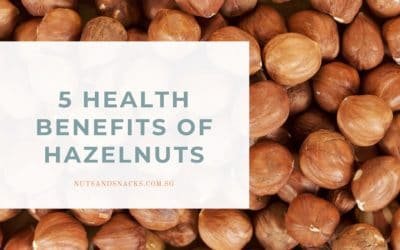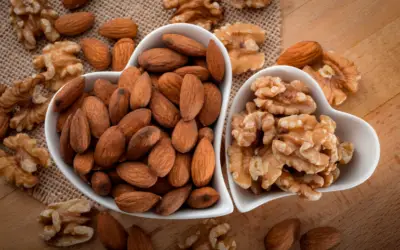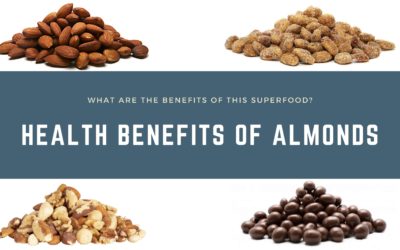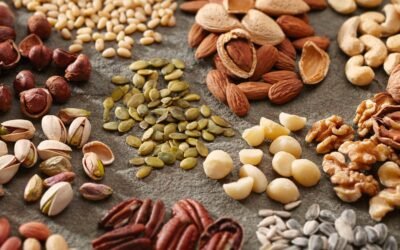It’s well known that eating nuts is good for our health. But that statement is about as much use as someone saying that to survive, we must eat a healthy diet. Nuts are indeed very beneficial to our health and well-being. But we need to know how and when to eat them. There are many different questions that you might be searching for the answers in relation to the consumption of nuts. In this article we will cover the most popular question such as whether nuts should be eaten raw or toasted, what types of nuts you should eat and in what quantity. It’s common knowledge also that overeating of nuts can put a strain on your digestion; but the same could be said for almost anything you eat!
How to Consume Nuts: Raw or Toasted?
If you pick up a packet of nuts in your health store or indeed in your supermarket, they will be toasted or roasted. So, can you eat nuts raw that you find in the wild? The answer is yes, you can. And, eating raw nuts is actually more beneficial. When nuts are toasted, they become tastier. But the roasting or toasting process also causes the fats they contain to be oxidized. The most susceptible of these are the polyunsaturated fats omega-3 and omega-6. The process of oxidization can be partially prevented by using antioxidants like Vitamin E and flavonoids. It does however depend greatly on the temperature used for toasting the nuts. The best option is therefore freshly roasted nuts. Here you should be careful as this type of nut is not designed to be stored for long periods and will go rancid fairly quickly.
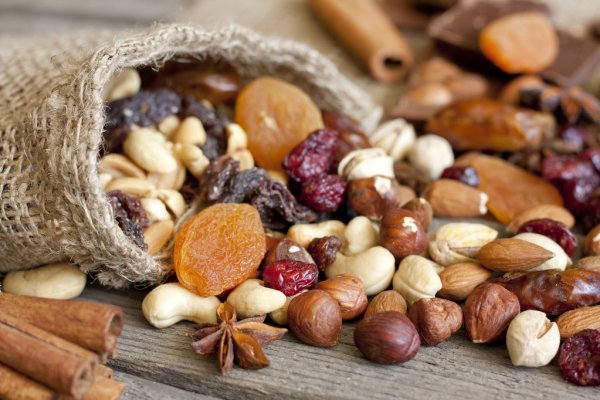
Nutritional Value of Nuts
Each type of nut has its own nutritional value as well as anti-nutrients such as lectins and phytic acid that interfere with absorption of nutrients. For this reason, it’s important not to overeat on one particular type of nut and to instead eat a wide variety of different nuts, in moderation. It’s okay to have one favorite type of nut, but a bag of mixed nuts and dried fruits is always better.
Soaking and Sprouting of Nuts
If you like to eat nuts regularly, eating them as a staple, then soaking them is beneficial. Soaking or sprouting nuts involves leaving them over night in a jar full of water. After soaking, the nuts should be left to dry out. This process helps to remove anti-nutrients from the nuts and helps their digestibly. If you do this, make sure to consume them shortly after they dry out to prevent oxidation taking place.
Can You Eat Too Many Nuts?
The short answer to this is yes. To reap the maximum benefits from consuming nuts, you should limit your intake to 2 ounces a day. This is the equivalent to a large handful. This is where many people run into problems, as salted and roasted nuts can be quite addictive. A way to curb your consumption is to stick to raw nuts.
What Is The Best Time to Eat Nuts?
Recommendation state that you should eat nuts with breakfast for best results. This is due to the fact that nuts will ward off fatigue during the day as well as helping regulate blood pressure. Dried fruits and nuts are packed full of macronutrients and have been deemed to be the healthiest snacking option. Their anti-oxidant properties help fight off inflammation and tissue and cell damage. Rich in healthy fats, fiber, and minerals and vitamins, when eaten in moderation they will also help lower cholesterol. As some nuts are high in fat, it is advisable however to eat them early on in the day.
The macro nutrients contained in nuts are vitamins, irons, calcium, omega-3 fatty acid, copper, magnesium, zinc, potassium, manganese, and other minerals. In order to benefit fully from eating nuts, you need to eat them sensibly and at the correct time of day. In the morning, almonds are an excellent way to start your day. If you like to snack on nuts later on in the day, choose cashew nuts, pine nuts, or pistachios. These can help boost stamina and can be taken when you feel yourself lagging during the afternoon or after a long day at work. If you love to snack on nuts before bed, choose walnuts or alternatively dates or prunes. All three of these options are high in soluble fiber, helping with digestion and alleviating constipation. Eating these late at night will put a stop to feeling bloated in the morning.
What Nuts Should You Avoid?
In general, there isn’t any nuts you should avoid, you just need to avoid overeating of nuts. This can however be said about almost all healthy snacks. However, to avoid sleep disturbance, try to avoid eating cashew nuts at night as these can lead to indigestion. Nuts are generally healthy foods and thus eat them in moderation and you are good to go.
How Much Nuts Should You Eat A Day?
As we mentioned above, a generous handful each day should be enough. If you wish to divide this up over the course of the day, think in terms of 25 nuts, in 5 sittings. This would be the average for almonds or similar sized nuts. Brazil nuts are obviously larger, and peanuts smaller. Common sense is what should prevail when working out how many nuts to eat. It also depends on your body size and your physical activities.
At NutsAndSnacks.com.sg we provide the recommended serving size for each nut and snack. Thus, you can follow the recommended serving size for each item. Although it cannot be disputed that eating a whole bag of peanuts is preferable to eating a whole bag of candy, moderation is still key. Have a wide variety of foods even though nuts are delicious!

